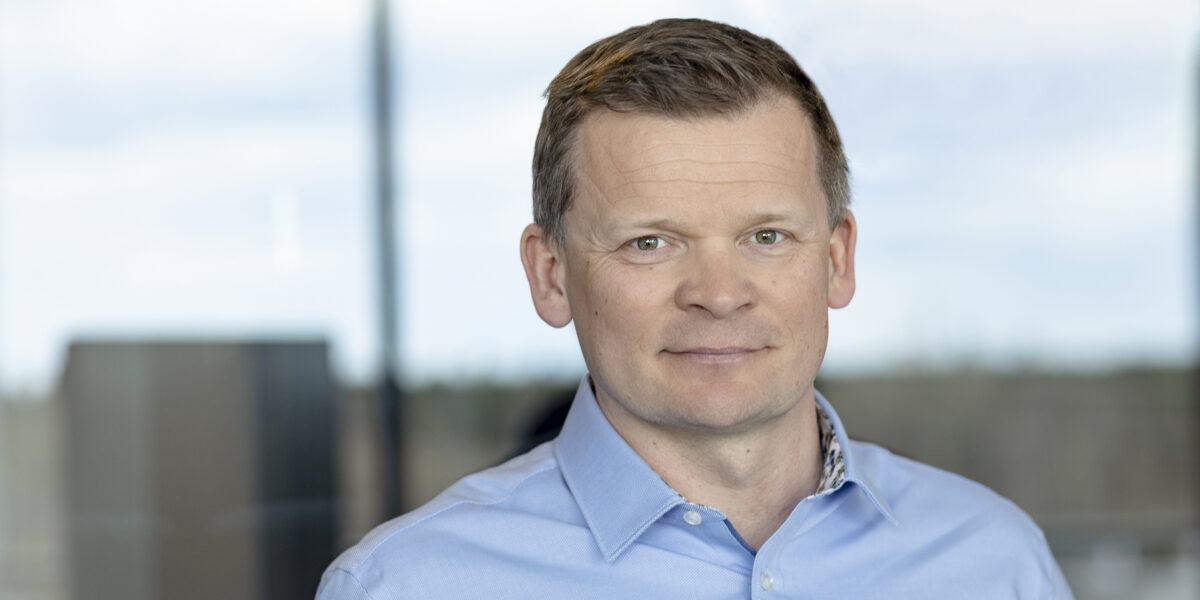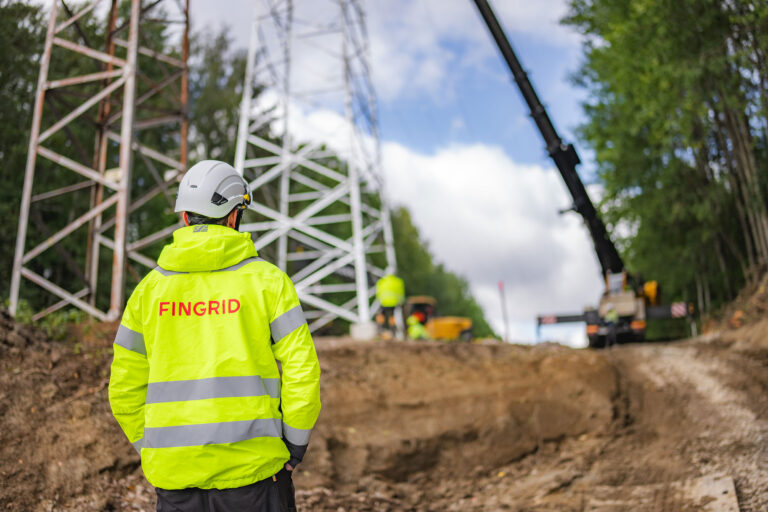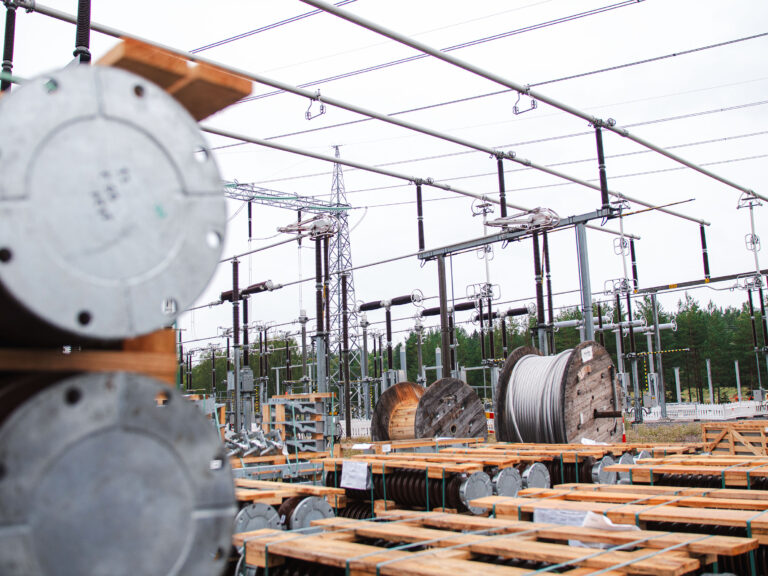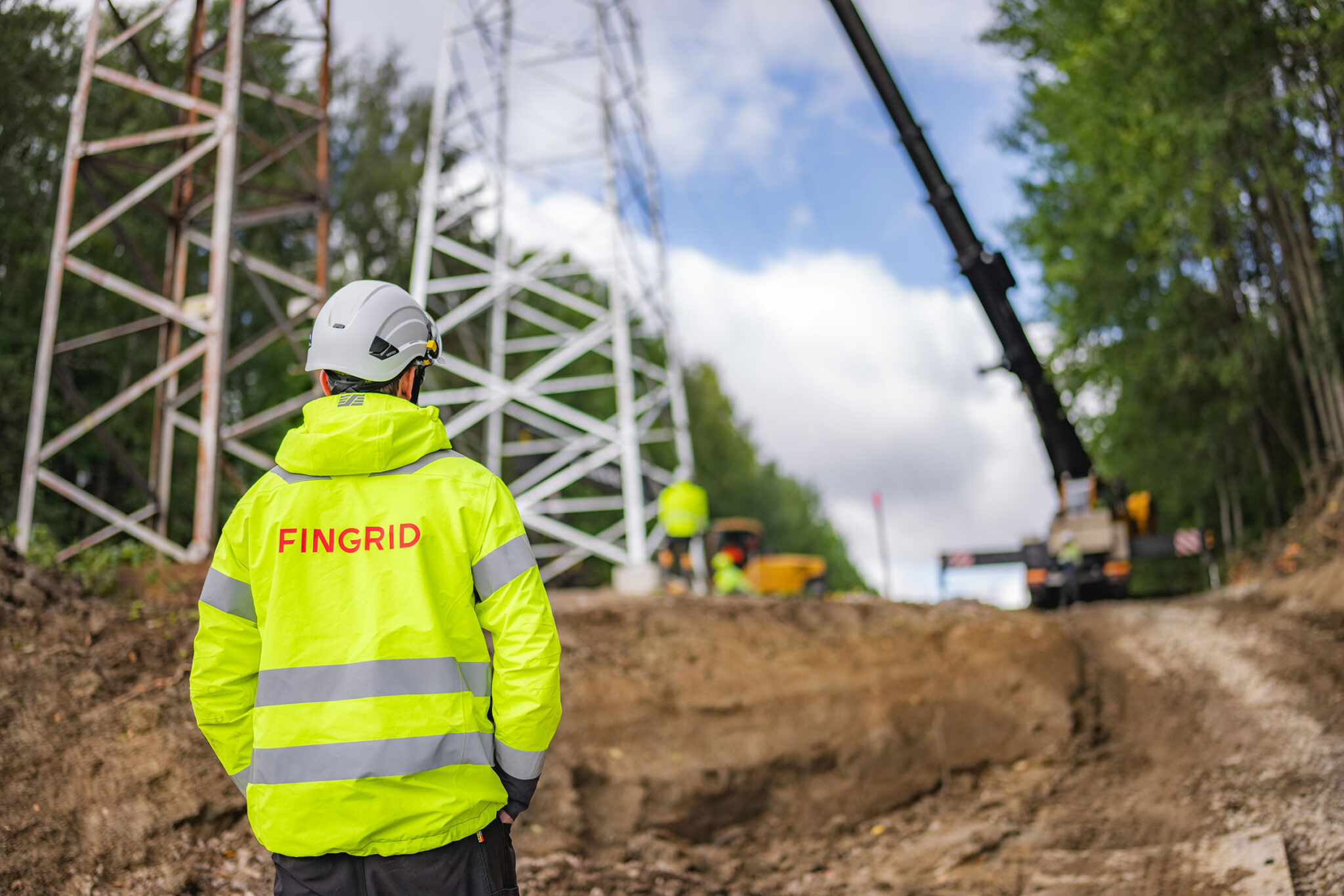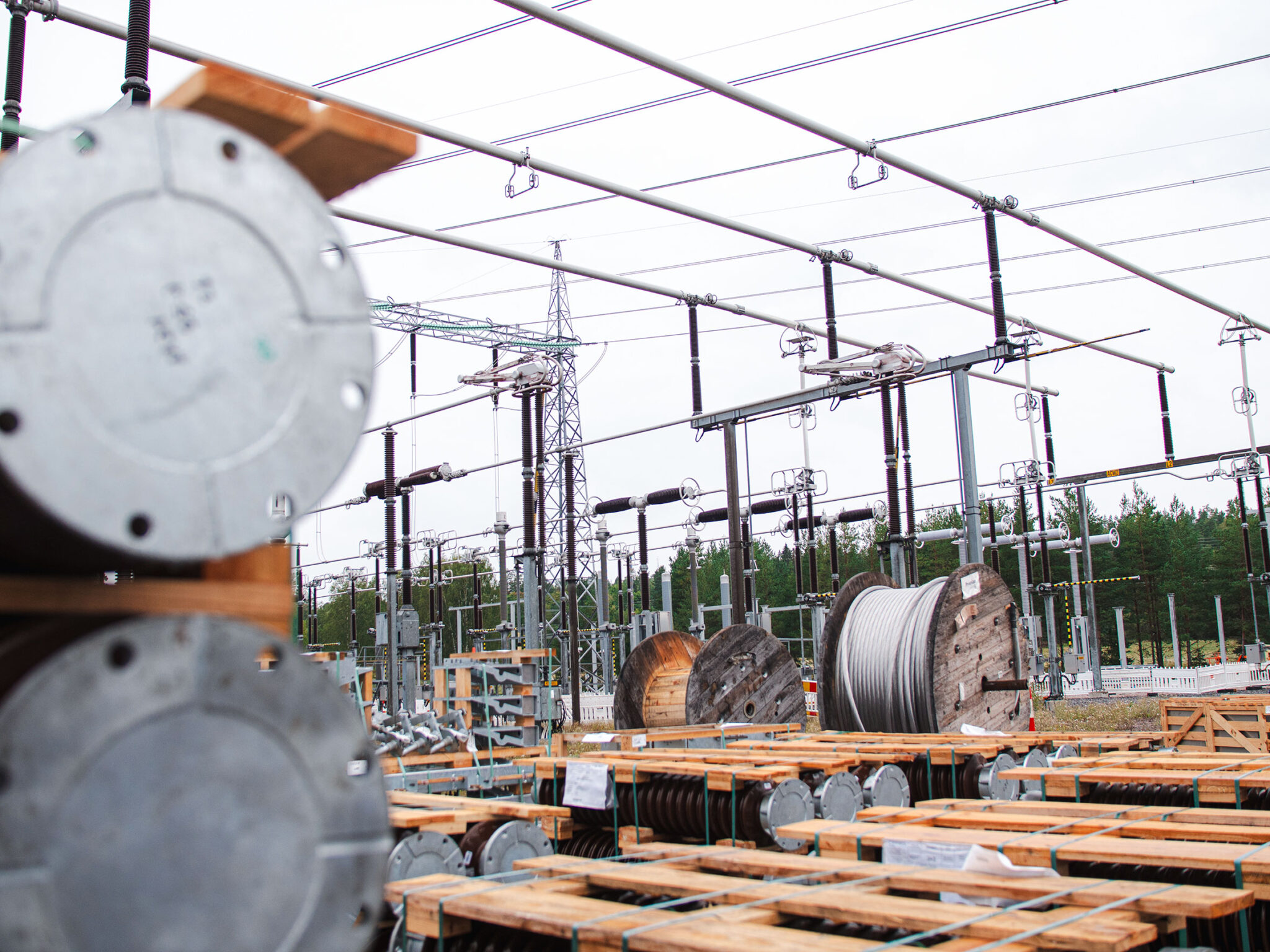Renewable energy production has grown while combustion-based power generation has decreased.
Out of all the European countries, this change has occurred fastest in Finland. Finnish households, companies, municipalities, and cities benefit from clean and affordable electricity, which is also a source of competitive advantage for the country.
At the same time, Finland’s electricity self-sufficiency has increased—it currently produces almost as much electricity as it consumes every year. In contrast, in 2018, about one-quarter of Finland’s annual electricity consumption was imported.
This trend in the electricity market development has received international attention, and Fingrid receives many enquiries from various industries about connecting to the main grid. The Confederation of Finnish Industries has published an impressive, clean transition investment portfolio in Finland, worth over EUR 250 billion.
Currently Finland produces almost as much electricity as it consumes every year.
In addition to investments in the electricity network, this trend requires more from the power system operations and ensuring the availability of electricity.
The power system is expanding at pace. The geographic separation between electricity consumption and production increases the need for electricity transmission and increases transmission losses. As more societal functions are electrified, more power system reserves and electricity transmission management solutions will be needed to ensure a reliable electricity supply and the efficient management of changes and disturbances in the power system.
The cost of operating the power system is climbing. Fingrid’s investments in the main grid are large in relation to the company’s investment capacity, which is defined by the regulatory methods. Managing the nationwide power balance has become more important, and the revenue from balance services has accounted even for as much as two-thirds of the company’s revenues. As a result, Fingrid has transformed from an infrastructure company into a service company.
The cost of maintaining the power system has risen as the electricity price declines. The combined outcome is cheaper, cleaner electricity for consumers.
As the weather-dependent power system expands, there is a greater need for system operations. Today, Fingrid purchases power system reserves equivalent to about one-fifth of Finland’s real time electricity production. New electricity market solutions will continue to be introduced. When combined with high demand, they will offer new opportunities to capitalise on the capacity for flexibility in responding to the power system’s needs.
Now is the ideal time to rethink earning models: actively participating in the electricity market is a fantastic business opportunity. It is also a responsible act that contributes to the efficient operation of the clean power system and Finland’s overall competitiveness.
Jukka Metsälä
CFO
Fingrid

